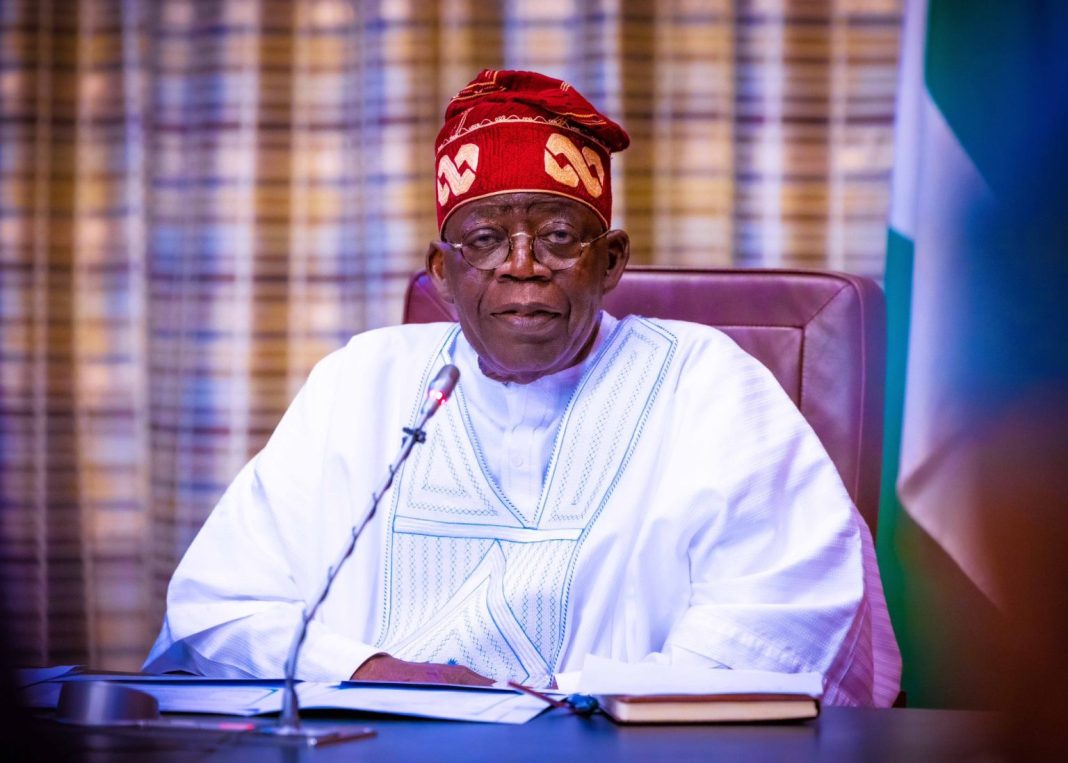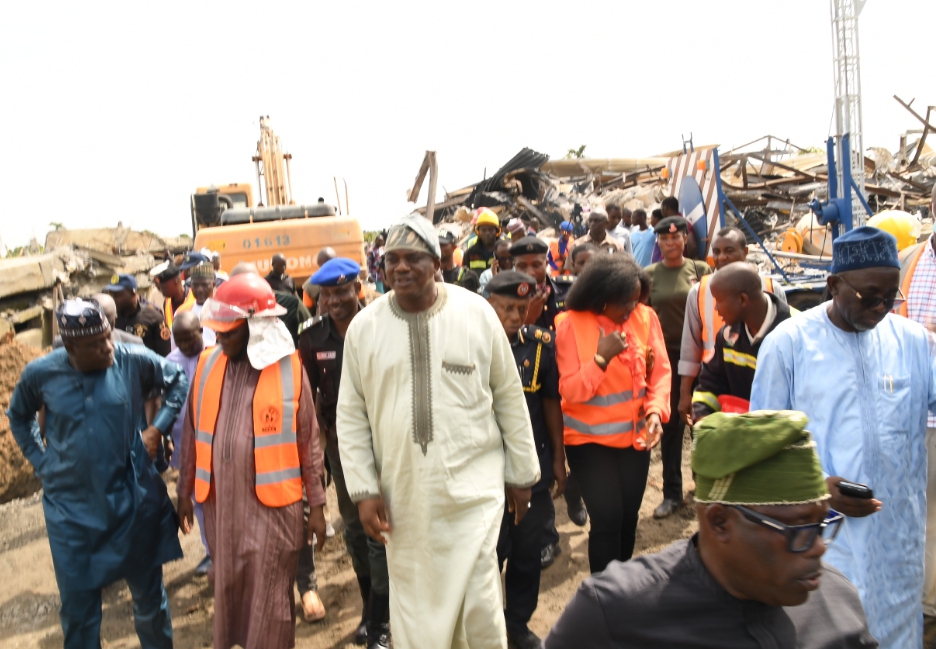Adefolarin A Olamilekan
A modest inquiry into Nigeria’s macroeconomic developments post military era1999 has been a momentous year’s. In spite of the huge expectations of economic growth targeted to translate into meaningful development. The country still grappled with recurrent set backs.
Instructively, one act that has never been in short supply is initiative to reforms. Succinctly, space will not permits us to list all reforms carried out by the Nigerian’ State. However, worth mentioning is reform in job creation, power sector, oil and gas, agriculture, and public services.
In our view, reform initiated or undertaken is to helped manage scarce resources, achieve optimum benefits and effective to sustaining any nation’s finance’s.
In reminiscence, the general elections held in February 2023 brought about another democratic transition of power. The All Progressive Congress (APC) been the ruling party was able retain the Presidency,majority seats in the National Assembly, Governorship and States Assembly in a tension soak election contest.
Palpably, there is heightening expectations for meaningful economic progress. With Senator Bola Ahmed Tinubu having been sworn in as the 16th President of Nigeria. Tinubu’s Government is taking power during a very challenging time, marked by global oil prices uncertainty, surging core and food inflation , fattening corruption and continuing violence in the country’s northwest, northeast and north central. This perhaps creates a difficult context for the new administration’s, as well as it latest ambitious to reform the nation’s financial system.
Meanwhile, the Tinubu’s government as part of its responses to challenge on ground takes actions on several long delayed policy , often against vocal opposition.
Notably, the government floated and unified the foreign exchange rates; removed fuel subsidies; adjustment of electricity tariffs toward costs reflective; began a process to enhanced debt management and; increased public sector transparency.
As if the foregoing was not enough, President Tinubu is to reform the nation’s financial system and budgetary process. The President stated this in Lagos when he was hosted by Governor Babajide Sanwo-Olu, at the Lagos House, Marina. The President’s declared that “We have to re-engineer the financial system of the country and see that our economic planning and budgetary process is transparent enough to cater for all Nigerians”
He restated that he had to remove the fuel subsidy in order to stop the bleeding in the nation’s finances. In his word “ We must re-engineer the effectiveness of control and management of our resources in order to meet the obligation owed to Nigerians by politicians” This was also in addition to his promise to “operate an open-door policy and work together with the state governors to achieve true federalism”
In retrospects, financial system reforms began in Nigeria with the deregulation of interest rates in August 1987. Since then, far-reaching policy measures including the chartering of new banks, reform of the capital market and a move from direct to indirect monetary controls have been undertaken. However, in recent time the federal government did carried out reform such as Government Integrated Financial and Management Information System (GIFMIS), Treasury Single Account (TSA), Integrated Personnel Payroll Information System
(IPPIS), International Public Sector Accounting Standards (IPSAS) implementation. And of note is the Finance Act 2021, that brought about amendment to the Capital Gains Tax Act, Company Income Tax, FIRS Establishment Act, Personal Income Tax, Stamp Duties Act and Tertiary Education Act, Value Added Tax, Insurance Act, Police Trust Fund and the Fiscal Responsibility Act. These are financial reform’s to domestic revenue mobilisation, transparent tax administration, tax equity and, improving public financial management processes. With a goal to help government maximise fund’s. Consequently, the financial reforms were to serve as an engine of growth for the economy. However, many of these reform initiatives as critical as they where, are not without there own gaps and weakness. This raises the question regarding whether reform do really work or is sufficient to be embanked on. Interestingly for us, the answer has two major parts. The first part turns to the problem or challenge that necessitates reforms. For instance, over the years the country has had to deal with problem of multiple taxation and the government respond to the challenge with Finance Act 2021.Meanwhile the issues of multiple taxation is still very much around, particularly at the subnational level.
The second answer is about the understanding of what are the cost implications of reform. Either, financial wise,human resources and goal intention. Essentially, reform are cost intensive, we can’t rule out that.
But the cost must relate effectively with intended goals, short-term, mediums term, and long term. Meaning, result coming from reforms must have a sustained result. In our case it has not materialized to this point. A good example, is the reform of the electricity sector, that have not given us a sustained positive result, even when the intended goal of reforming the sector was a target of 10,000 megawatts of electricity.
Having said, this now bring to bear, the concerns over president Tinubu’s reform target of the financial system and budgetary processes. This for us is important, prompting to as the across following questions. What is wrong with our current financial system? What solution is President Tinubu’s adopting for a transparent budgetary processes? What form of financial system re-engineering? What procedure of budgetary process is to be implemented? How would the economy fare under this reform? To many this questions may not be necessary.
Indubitably, any reader would read this and think, it’s ridiculous to asked. It important for critical mind, chiefly because the flip side of reform as stated earlier in this piece, acknowledges reform as bold initiatives in key areas of a nation economy’s targeted to break the cycle of low growth, high poverty, slow job creation, and fragility.
Moreover, across the world, there is no country that is free from daily problems of managing her economic affairs and well-being of its citizens, without initiating reform when necessary. Sadly, the difference is that here in Nigeria. We are not results oriented, rather our mindset is favour towards faultfinding, personal interest and wealth accumulation to the detriment of national accelerate economic growth and development.
In all modesty, President Tinubu task of reforming the financial system and budgetary processes. In our understanding is driven by his patriotism and loyalty to fatherland. The challenge before President Tinubu is having a workable and actionable solution to the existing problems on ground,and plan against unforseen ones.
And this probably, can not be without a reform suitable for result.
Meanwhile, ours is a contributions to the thinking pot of national development, with critical censures. As we draw the government attention to the fiscal, monetary, and trade policies crucial to restore macroeconomic stability, and lift Nigeria’s growth potential. That as been projected upward at 3.3% in 2023, 3.7% in 2024, and 4.1% in 2025.
Granting, the role of global shocks making this a reality or not are with us. Nevertheless, how President Tinubu deployed domestic policies would eventually determined the Nigeria’s economy resilience against the shocks.
What than is our options ? It important for Tinubu government to learn from previous reform that ended as pervasive government intervention in the financial system, resulting in corruption and resource misappropriation. Our advice is to build on the immediate, major reforms, and seize the opportunity to correct errors that affects such reform potential. Again, it imperative for the government to ensure a mix of fiscal, monetary and trade policies, as his government economic fighting toolkit against high inflation, de – production and poverty.
In this piece we devotes our attention to this because of it’s relevance moving forwards. Our anticipation is for Tinubu get it right.





